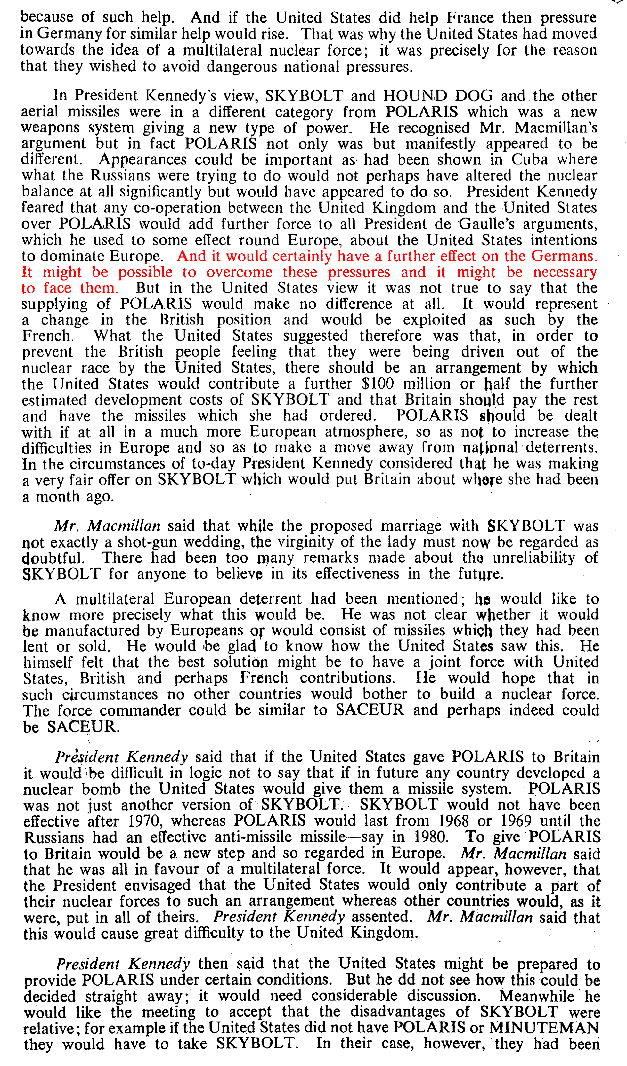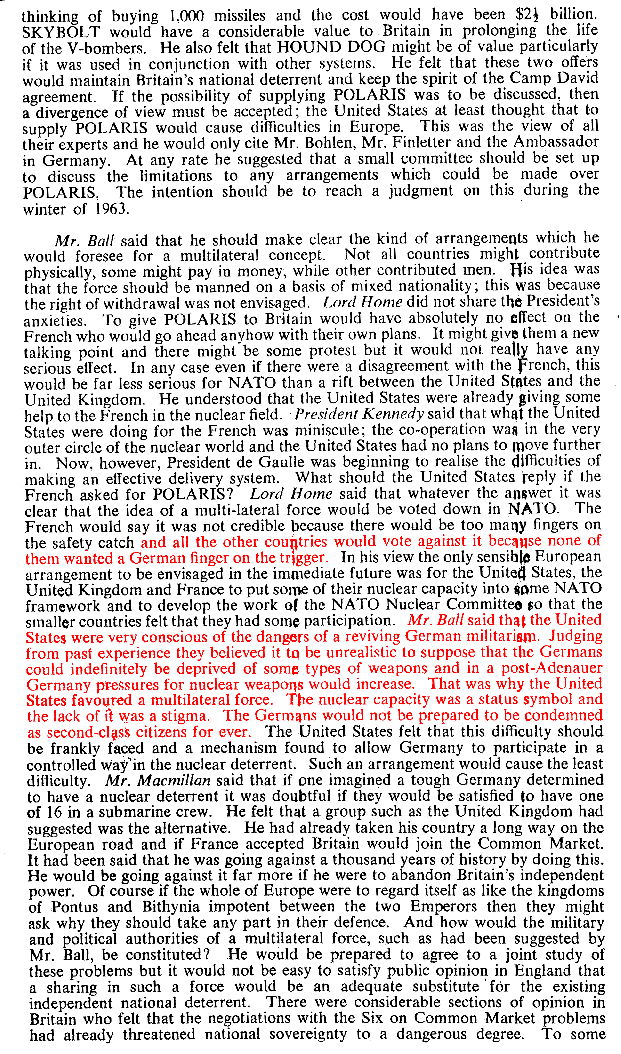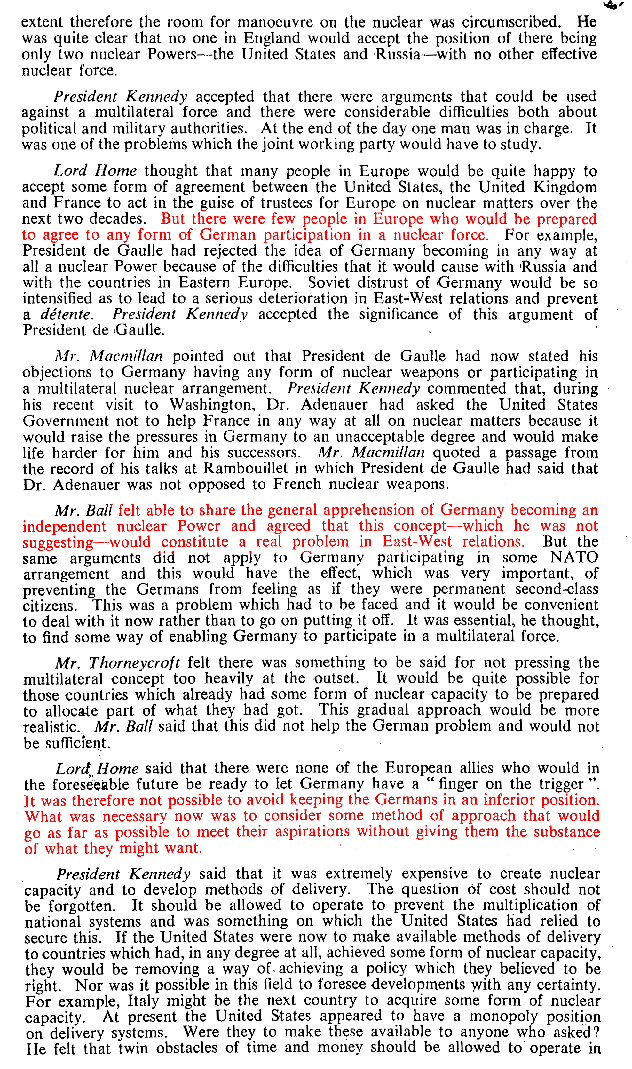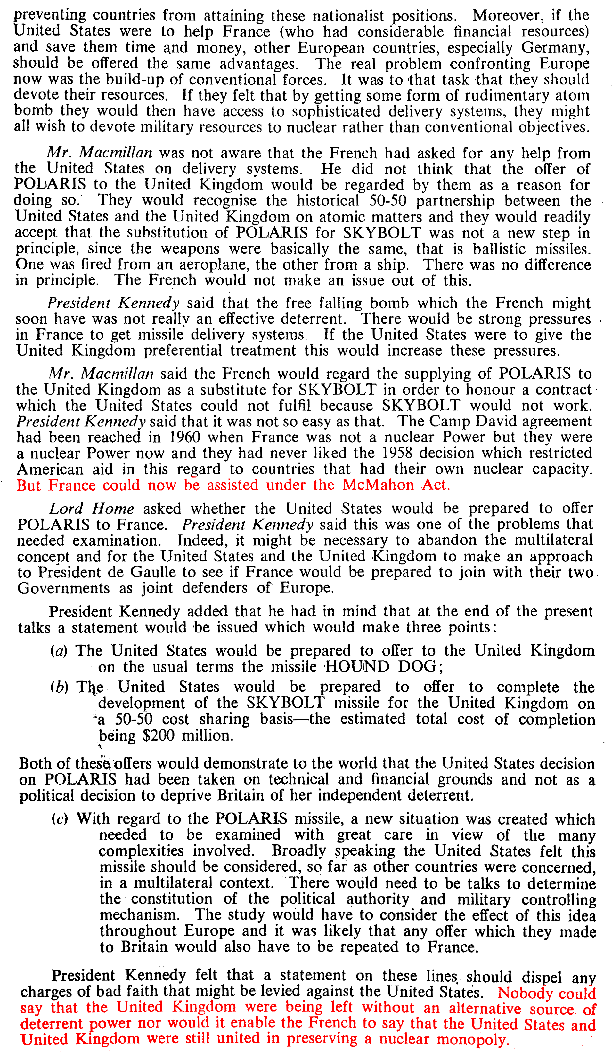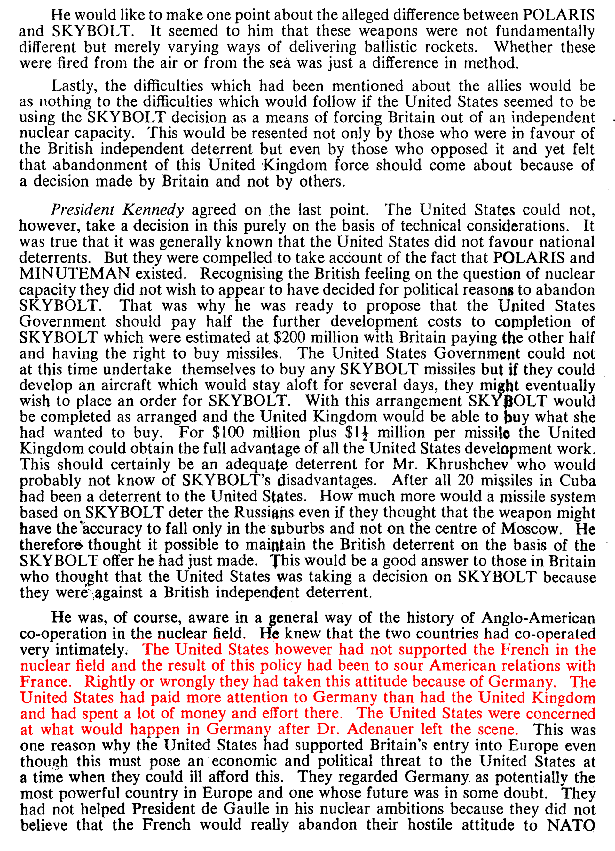
Document 6: Extract from the notes of a meeting between Kennedy, Macmillan and other officials, at Nassau, December 19, 1962, 9:50 a.m.
Source: Record of Nassau Conference, Prem 11/4229, PRO. The sanitized U.S. record of this meeting is in FRUS 1961-63, vol. 13, pp. 1091-1101.This document shows how much can be learned from a close comparison of two records of the same meeting coming from the archives of different governments. In this case, since the British record is more inclusive than the American--the British do not go in for "sanitizing" documents, American style, but either release a document in its entirety or not at all--one can identify the sort of material the American censors tend to delete. Those deletions fall into a pattern, which in turn is easily understandable in political terms; in that way the bias of the declassifiers can be identified and can thus be taken into account when an interpretation is being worked out.
When the extract which appears below is compared with the sanitized American record of this same meeting published in FRUS, one notes first of all that the two versions match up quite well (which, incidentally, tells you something important about the quality of note-taking at such meetings); the fact that they do match up quite nicely allows one to identify passages in this British record which correspond to the passages deleted from the version in FRUS, indicated there by numbered footnotes in the text.
The nine passages highlighted in red in the extract reproduced below correspond to the nine deletions marked by footnotes 3-11 in FRUS 1961-63, vol. 13, pp. 1094-98, and appear in the same order as the deletions in the FRUS volume. The one possible exception is the single highlighted passage on the second page below, which probably, although not certainly, corresponds to n. 4 on p. 1095 of the FRUS volume; it may, however, simply include material which the American notetaker, Llewellyn Thompson, did not choose to include.
What is striking here is that all seven highlighted passages on the first four pages below relate to Germany and the German nuclear question. It is not hard to understand why the U.S. censors chose to delete such passages. The government, for obvious reasons, prefers not to broadcast the fact that U.S. and other western leaders distrust one of America's most important allies. On the nuclear issue, the line therefore was that the American policy of opposing the idea of nuclear forces under national control was not directed against Germany, but was rather a matter of general policy; and evidence that contradicted that claim and showed that the German question was the central consideration was thus to be suppressed. The deletions, therefore, fell into a pattern which is easily understandable in political terms; this means that evidence of this particular motivation is likely to be underrepresented in the declassified American sources.
The deletions on the final page relate to the same issue, but in a slightly different way. The censors were trying to conceal the fact that Kennedy was not opposed in principle to the idea of nuclear forces under European national control, and in particular to forces under British and French control.
The extract that follows begins with British prime minister Macmillan talking; the corresponding point in the U.S. record can be found at the top of p. 1094 in the FRUS volume.

